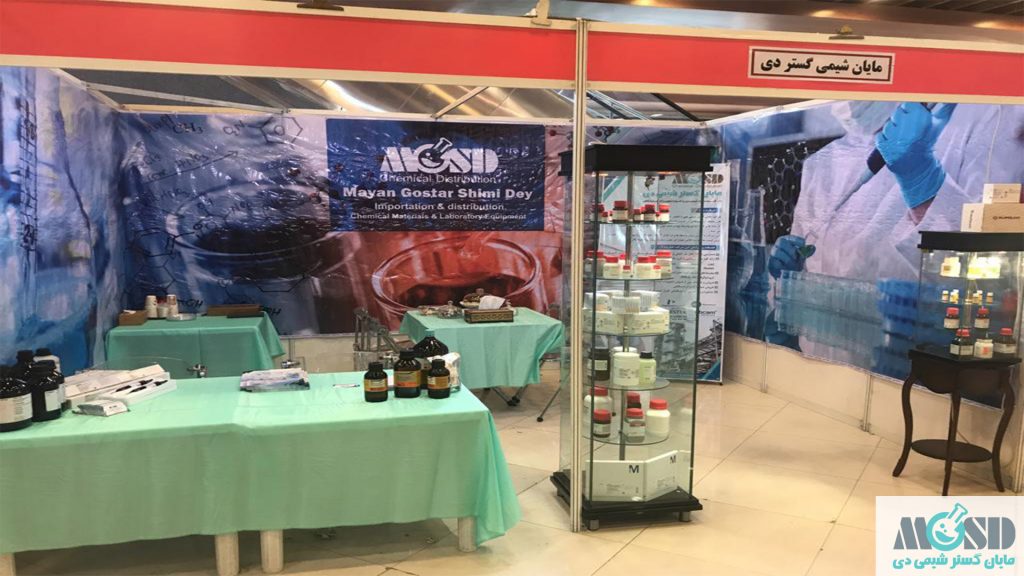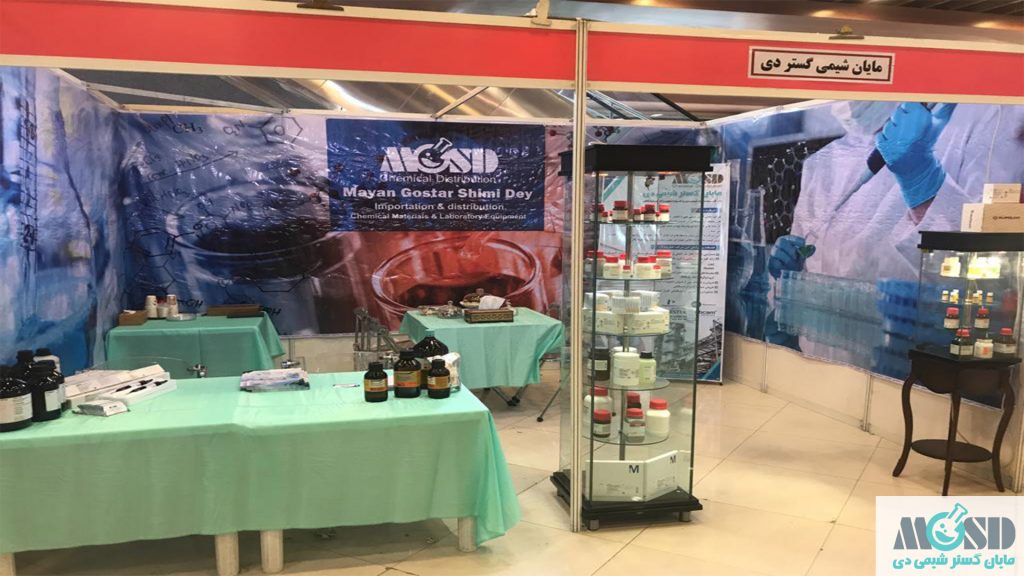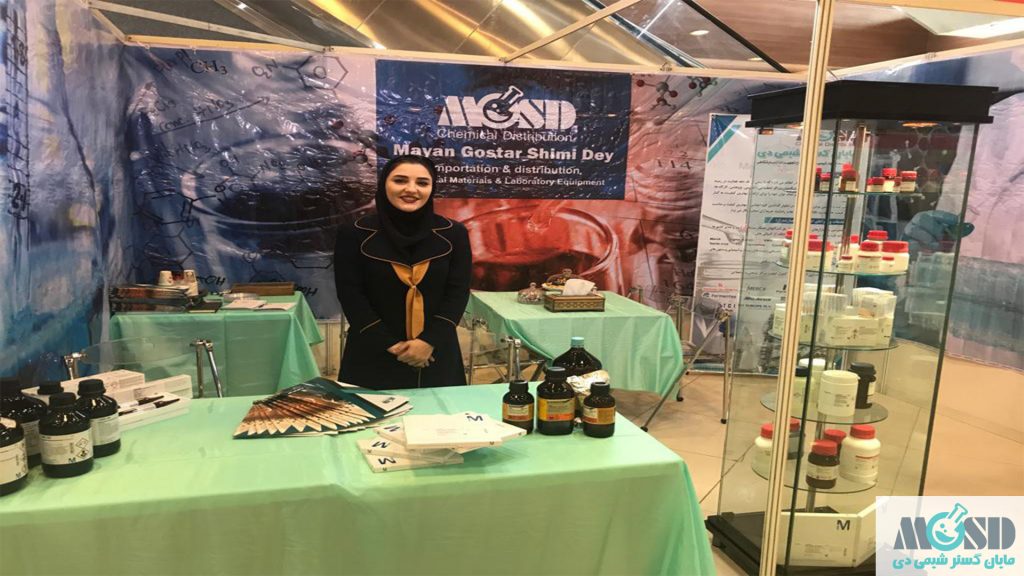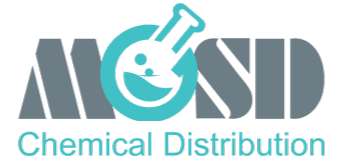


The fourth national conference of laboratory equipment and materials of the oil industry will be held on November 13th and 14th, 2017 at the Dialog Exhibition Complex in Tehran along with a side exhibition and a free educational workshop.
Goals:
This conference is held annually with the presence of private companies, knowledge-based companies, science and technology parks of provinces and growth centers with the presence of managers of the exhibition center, experts and specialists of the oil industry from government and private companies in the field of oil, gas and petrochemicals. A specialized event is held, which in the previous two periods, more than 400 laboratory managers from companies active in the oil industry and more than 50 companies were present in the exhibition section, which is our goal to solve the problems of the laboratory and the necessary standards of the oil industry.
Objectives of the conference:
The presence of managers, experts and specialists of the oil, gas and petrochemical industry laboratory and interaction with other managers
Reaching global standards in oil industry laboratories and raising the quality of products
Preventing and solving the problems of inconsistency of standards, rules and technical regulations in the country
The need for serious revision and re-engineering of the concept and meaning of standard rules and regulations
Accurate and detailed explanation of the views, challenges and successful experiences of organizations and institutions in the standardization and implementation of product and service standards.
Accurate identification of product and service standards
Examining the effects of harmonizing standards with laws and regulations in related organizations and institutions
The need to know more about the standard as the infrastructure for the development of the oil industry
Solving oil industry problems by private, government and knowledge-based companies
Revival of the country's oil industry through cooperation with private, government and knowledge-based companies
Introducing the latest achievements and top capabilities of Iran's oil industry
Investigating the quality of domestically produced products and their compliance with foreign samples and international standards
Investigating the existing fields and potentials in the knowledge-based industry for the promotion of the country's industry
A look at the history and progress of the country's oil industry with the goals of resistance economy
Identifying innovators and inventors and providing material and non-material support and guiding and empowering them;
Identifying the problems and needs of executive bodies and the private sector and introducing them to elites and idea owners in order to solve the needs and provide solutions to solve the problems of the oil industry.
Employing talented and elite people in oil industry projects and interaction of industrialists and elites with each other
Cultivation and creation of three-way interaction of inventors, investors and brokers and using the capacity of each party to commercialize the achievements of elites and knowledge-based products.
Educating elites with the process of commercialization and providing expert advice and creating interaction between inventors and domestic investors.
The themes of the conference:
Chemistry and material production
-Organic Chemistry
– Mineral chemistry
– Physical chemistry
Analytical chemistry
– Nanotechnology
– Nuclear chemistry
– Catalyst
– Vital chemistry
– Polymer
– Biochemistry
Coating chemistry
-water refinery
-Chemical and polymer production
– Production of bitumen and petroleum materials
– Production of test materials for all types of oil, grease, antifreeze and lubricants
– Production of nano materials
– Production of crude oil materials
– Production of mineral materials
– Water and sewage and water treatment
– Food laboratory
– Application of computational methods in chemistry
-Related topics
Materials
Characterization of materials
– Physical, chemical and structural characterization
– Mechanical characterization
– Change of form, damage, fatigue and breakage in 3rd materials
– Dynamic behavior of materials
– Electron microscope and spectroscopy
– Diffraction and scattering of X-rays and neutrons
– Microscope and scanning probe spectrometry
– Photography techniques
-Related topics
Manufacturing and production, industrial topics, measurement techniques and standards
– Design, engineering and manufacturing with the help of computer
– Casting and freezing
– Accurate modeling processes
– Welding and connection processes
– Mechanical forming processes
– Powder metallurgy
– Thermal operations
– Cutting and machining processes
– Non-destructive tests
– Manufacturing with the help of laser
-Related topics
Surface science and engineering
– Coatings and thin layers
– Tribological coatings: resistant to wear
– Hard and super hard coatings
Corrosion and protection at high temperature
– Catalysts
– Electrochemistry
– Surface operations: topography and histography
-Related topics
Computational materials science and engineering (modeling and simulation)
– Computational phase, thermodynamic and kinetic diagram modeling
– Principles and modeling of materials processing
– Phase transformation and microstructural changes
– Material modeling in different length scales
-Related topics
Nano science and technology
– Nanomaterials including nanoparticles, nanocrystals, nanotubes, nanowires, nanocomposites, nanoporous materials
– Nanocoatings and nanostructured films
– Nanobiotechnology and nanomedicine
– Nanoelectronics, spintronics, nanomagnets
-Nanooptic, nanooptoelectronic, nanophotonic, plasmonic
– Computational nanotechnology (modeling and simulation)
– Manufacturing and production in nano scale, industrial topics, technology transfer, measurement techniques and standards
-Related topics
Management and leadership in materials engineering
– Education and technology transfer in engineering and materials science
– Design and production of advanced materials
Oil, gas and petrochemicals
– Energy, combustion and safety
– Transfer phenomena
– Thermodynamics and phase balance
– Kinetic, catalyst and reactor design
-Separation processes
– Biotechnology and bioprocess engineering
– Modeling and simulating
– Polymer engineering
– Nanotechnology
– Economic management in the petrochemical industry
-process control
– Heat exchangers
– Industrial furnaces
– Safety and inspection
– Color and insulation
-repair and maintenance
-LPG
– Gasoline
– White oil
– Gas oil
– Fuel oil
– Bitumen
– Industrial lubricants
– Separating flare gases and returning them to the industry
Corrosion
– Economic management in oil and gas industries
-Related topics
Mechanics and metallurgy
Mechanics of solids
– Analysis of elastic and inelastic stress
– Non-classical elasticity
– Thermoelasticity
– Impact mechanics
– Collision and penetration issues
– Mechanical failure
– analyze
Creep and fatigue
– Beam, plate and shell
– Pressure Vessels
– Mechanics of structures
– Computational and experimental methods in solid mechanics
– Intelligent and complex structures
Dynamics of vibrations and control
– Modeling dynamic systems
– Dynamic systems control
– Dynamics of multi-component systems
– Non-linear dynamics and chaos
– Vibration and sound control
– Non-linear vibrations
– Health monitoring of structures
– Acoustic
– Dynamics of structures
– Smart structures
– Interference of structure and fluid
– Dynamics of manned and unmanned vehicles
– Design and control of robots and mechanisms
– Mechatronics
– Intelligent control methods and soft calculations
– Process identification and control
– Measurement and calibration
Fluid Mechanics
– Compressible flows
– Slow currents
– Turbulent flows and its models
– Simulation of large eddies
– Non-permanent currents
– Multiphase currents
– Flow in a porous medium
– Non-teutonic fluids
– Boundary layers
– Dynamics of quasi-static fluids (finite difference, finite volume and Boltzmann network, …)
– Current measurement
– Experimental fluid mechanics and flow observation
– Numerical and laboratory data analysis methods
– Fluid and structure interaction
– Sound reduction
– Hydraulic
– Turbo machine
– Hydrodynamics
– Aerodynamics
Thermodynamics and heat transfer
– New thermodynamic cycles
– Exergy and thermoeconomic analysis of heating systems
– statistical thermodynamics
– Thermodynamics of multipart systems
– Combustion and reaction currents
– Chemical balance and phase balance
Conductive heat transfer
– Displacement heat transfer
– Radiant heat transfer
– Reverse heat transfer
– Heat transfer in porous media
– Computational heat transfer
– Increasing heat transfer
– Heat exchangers
– Designing heating systems
– Mass and heat transfer and phase change
– Condensation, evaporation and freezing
– Bio, micro and nano mechanics
-Fluid flow and heat in living tissue
-Mechanics in micro and nano scale
– Nanomaterials
-Analysis of fluid flow in micro and nano scale
-Heat transfer in micro and nano scale
– Nanomaterials and nanostructures for energy applications
-Multiscale analysis
– Dynamics and control of micro and nano systems
– Manufacturing processes of micro and nano systems
-Technology and construction of micro, nano electromechanical systems
Design and reliability of mechanical systems
– Innovative design of mechanisms
– Optimization of mechanical components and systems
– Analysis and design of dimensional and geometric tolerances
-Statistical analyzes in fracture mechanics and contact mechanics
– Theoretical and experimental evaluation of the reliability of mechanical components and connections
– Safety and risk analysis of engineering products and systems
Construction and production
– Computer-aided design and construction
– Automation
– Machining
– Shaping
– Welding
-Materials Science
– New manufacturing processes
– Fast sampling
-Non-destructive testing
Energy and environment
– The behavior of simultaneous production systems using waste energy
– Systems of simultaneous production of electricity, heat and cold
– Thermal energy storage
– District heating
-Desalination
– Thermal power plants
– Environmentally friendly design methods
– Renewable energies
– Combustion and air pollution
– Heating and cooling equipment
-Heating, ventilation and air conditioning
-Energy efficiency in building and industry
– Fuel cells
– Alternative fuels
– New energy technologies
human environment:
– Environmental management, planning and education
– Economy, law, ethics and environmental culture
– Tourism, land evaluation and preparation
– Pollution (water, soil, air, sound) and climate changes
– Standardization, management systems, safety, health and environment
– Management, design and urban planning
– Waste and recycling management
-Water and Wastewater Engineering
– Geographic Information Systems (GIS)
– New and sustainable methods and approaches in the field of human environment
natural environment:
– Biodiversity, protection of habitats and protected areas
– Environmental geology
– Geography and planning (natural, urban, rural, tourism)
– Sustainable management of forest and pasture and genetic reserves
– Crisis management (floods, earthquakes, fires in forests and pastures, storms and dust)
-Ecotourism management and sustainable development
– Management and protection of marine mammals and aquatic animals
– New and sustainable methods and approaches in the field of natural environment
Energy management
– Non-renewable energies: (oil, gas, coal, etc.)
– Renewable energies: (wind, water, waves, geothermal, biomass, solar, nuclear, hydrogen and fuel cell energy, etc.)
Optimal energy management:
– Management and optimization of energy consumption in various industries
-Education and awareness of energy consumption, economy and management of energy resources
– New technologies of energy production, transmission and distribution, the necessity of security and sustainable energy
– Energy systems, new methods and approaches in sustainable energy management
Standard and quality control
– Continuous improvement of process performance and implementation of modern management systems
– Prevention of events, reduction and diseases caused by work
– Reduction and prevention of environmental pollution
– Designing and improving suitable infrastructures
– Quality control loops in energy production and consumption
– Standard and quality control in chemical and polymer materials
– Standard and quality control in the production of bitumen and petroleum materials
– Standard and quality control in the production of test materials for all types of oil, grease, antifreeze and lubricants
– Standard and quality control in the production of nano materials
– Standard and quality control in the production of crude oil materials
– Standard and quality control in the production of mineral materials
– Standards and quality control in water and sewage and water treatment
– Standards and quality control in the food laboratory
– Standard and quality control in familiarization with new equipment
– Standard and quality control in the production of materials to prevent corrosion
– Standard and quality control in laboratory and research microscopes
– Standard and quality control in laboratory equipment and production of rubber and plastic materials
– Standard and control
Quality in environmental laboratory
– Standard and quality control in research and analytical laboratory
– Standard and quality control in laboratory microscopes
– Standard and quality control in the nuclear laboratory
– Standard and quality control in the laboratory for the production of detergents and sanitary materials
General laboratory equipment
– New ways of using laboratory devices
– Using new management approaches and methods in laboratory and industrial devices
Equipment management
– Strategic and integrated management of equipment
– Selection of equipment
– Economics of equipment engineering
– Management of energy consumption and efficiency
– Location of equipment in oil industries
– Training and management of human resources
– Risk management in rotating equipment
– Implementation of standards and the role of reference institutions
Design and manufacture
– Patterns and solutions for manufacturing equipment (reverse engineering, etc.)
– Design and numerical analysis of incompressible equipment (pumps, fans and blowers, etc.)
– Design and numerical analysis of compressible equipment (gas turbine, steam turbine, compressor, etc.)
– Electrical and mechanical design and analysis of generator and electric motor
– Standards, methods and technologies for manufacturing equipment and parts
Transient currents and mutual effects (stall, surge, rotor and stator interaction, cavitation, etc.)
Active and inactive flow control
– Reconstruction and optimization of rotating equipment
Installation, commissioning and operation
– Challenges and solutions for optimal installation and regulation of equipment
– Installation structures and infrastructures
– Positioning technologies and solutions
– Measuring equipment and installation regulation
– Strategies and indicators for pre-launch, experimental and operational launch
– Optimum use of equipment
– Equipment performance evaluation
Inspection and testing
– Methods, technical inspection of equipment and testing in the stages of production, transportation, installation, pre-commissioning, operation, maintenance, repairs and optimization.
– Risk analysis and preventive methods in providing safety
-Non-destructive inspection methods (NDT)
maintenance and repairs (net)
– Strategic and executive management of maintenance and repairs
– Diagnosis, detection and prediction of defects
– Comprehensive maintenance and repairs
– Anticipatory and pre-action techniques
– Comprehensive strategies and solutions for situation monitoring
– Analysis of vibrations, oil, thermography, sound monitoring, electric current and corrosion detection
– Maintenance and repairs based on reliability (RCM)
– CMMS
Control, instrumentation and automation
– Control design (linear, non-linear, optimal, adaptive, robust, intelligent, fuzzy, neural network, etc.)
– Industrial platforms of automation
– Industrial monitoring, precision instruments and sensor networks
Reliability and stability
– Reliability prediction and modeling
– Quantitative, qualitative and reliability optimization methods
– Reliability tests
– Concepts of sustainability in relation to equipment
– Sustainability tools and methods


